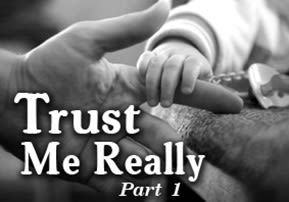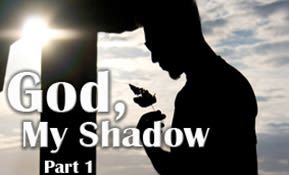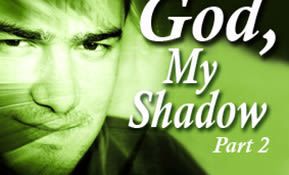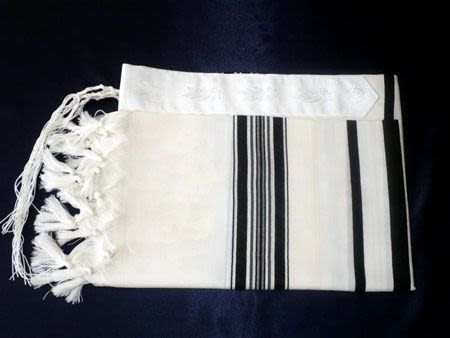
Trust Me Really
Trust is the ultimate measure of the depth of a relationship with anyone, and the extent to which you are prepared to trust someone is the extent to which...

May it be Your will God, and God of our fathers … that You give to us … life that is filled with the requests of our hearts for good. (Birchat HaChodesh)
A Jew, above all else should trust in God. Completely. Trust is the ultimate measure of the depth of a relationship with anyone, and the extent to which you are prepared to trust someone is the extent to which you are one with that person, or with God for that matter. And, since a Jew should have as close a relationship with God as he or she possibly can, then he or she is meant to trust in God completely.
However, there are levels of trust, and Judaism makes a distinction between someone who trusts in God and someone who is a “Ba’al Bitachon” — literally, an “Owner of Trust in God”. It is the difference between someone who believes in the concept of trust in God and does on occasion, and someone whose entire life reflects his complete trust in his Creator, even when the situation seems hopeless.
For the former, trust in God amounts to:
“Sometimes good results happen, sometimes they don’t. But I trust that no matter happens, all that God does He does for the good.”
In other words, there is a built-in margin of error, just in case we don’t get what we asked for. It is our fear of disappointment that reigns in our ability to fully trust in God, making, as we shall see, disappointment a self-fulfilling prophecy.
However, for the Ba’al Bitachon the good just always seems to happen as long as he wants it to, like in the case of Yosef HaTzaddik, and after him, Chanina Ben Dosa.
Chanina Ben Dosa was a miracle-worker in the full sense of the term. It seems that whatever he wanted he could get, and often at a moment’s notice. He was impervious to the basic dangers of life that plague most of us. Indeed, he was more dangerous to a poisonous snake than the snake was to him (Brochot 33a).[i]
Rebi Chanina was the perfect example of the saying, “The righteous will and God fulfills”. If he wanted it to stop raining it stopped raining. If he wanted the rain to begin again, the rain fell on his command, immediately:
While traveling he was caught in a shower and prayed “Master of the Universe, the whole world is pleased while Chanina alone is annoyed.” The rain immediately ceased. Arriving home, he changed his prayer: “Master of the Universe, shall all the world be grieved while Chanina enjoys his comfort?” As a result, showers descended. (Ta’anit 24b)
Commenting on this account, the Talmud laments:
Against Ben Dosa’s prayers, those of the Kohen Gadol himself are of no avail. (Ibid.)
And then, of course, there was Choni HaMagel — Choni the “Circle-Drawer” — also mentioned in the Talmud:
It once happened that [during a drought] they petitioned Choni HaMagel, “Pray for rain to fall.”
Choni told them, “Go, bring your Passover ovens indoors so that the should not dissolve.” (Ta’anit 19a)
“You want rain?” Choni asked them. “Why didn’t you say so? Go home and prepare for it, because here it comes.” The only question is, wasn’t Choni already aware of the fact that there was a drought? If yes, then why did he not pray for rain before the people came and implored him? Or, was their preparation for rain an integral part of the plan to bring the rain?
Choni prayed, but no rain fell. What did he do? He drew a circle and stood in the middle of it and said to God,
“Master of the Universe! Your children turned to me because I am like a member of your household. I swear by your great Name that I am not moving from here until You have compassion on Your children!” (Ibid.)
Is that any way for flesh-and-blood to talk to Heaven? Perhaps — if you are asking for a lightning bolt to come down and hit you, God forbid. It certainly doesn’t sound like the proper way to increase one’s merit before God in order to have Him perform a life-saving miracle.
Nevertheless:
Rain began to drizzle.
Choni said, “That’s not what I asked for! I asked for rains to fill the cisterns, trenches and reservoirs!” (Ibid.)
Wait a moment. Who’s in charge here? A big miracle just happened, albeit in a small amount. Why is Choni unfazed? Why is Heaven not offended by his harsh response?
As a result, rain started coming down in torrents.
So Choni added, “That’s not what I asked for either. I asked for good rains, of blessing and generosity.” (Ibid.)
To be continued
(Author, lecturer, and scholar Rabbi Pinchas Winston is the director of ThirtySix.org. His book Be Positive is available for purchase online)
* * *
[i] He put his foot over the hole of the snake that was biting and killing people, and after it bit him, the snake died and Rebi Chanina Ben Dosa survived just fine.











Tell us what you think!
Thank you for your comment!
It will be published after approval by the Editor.